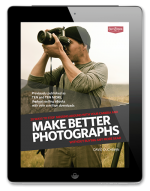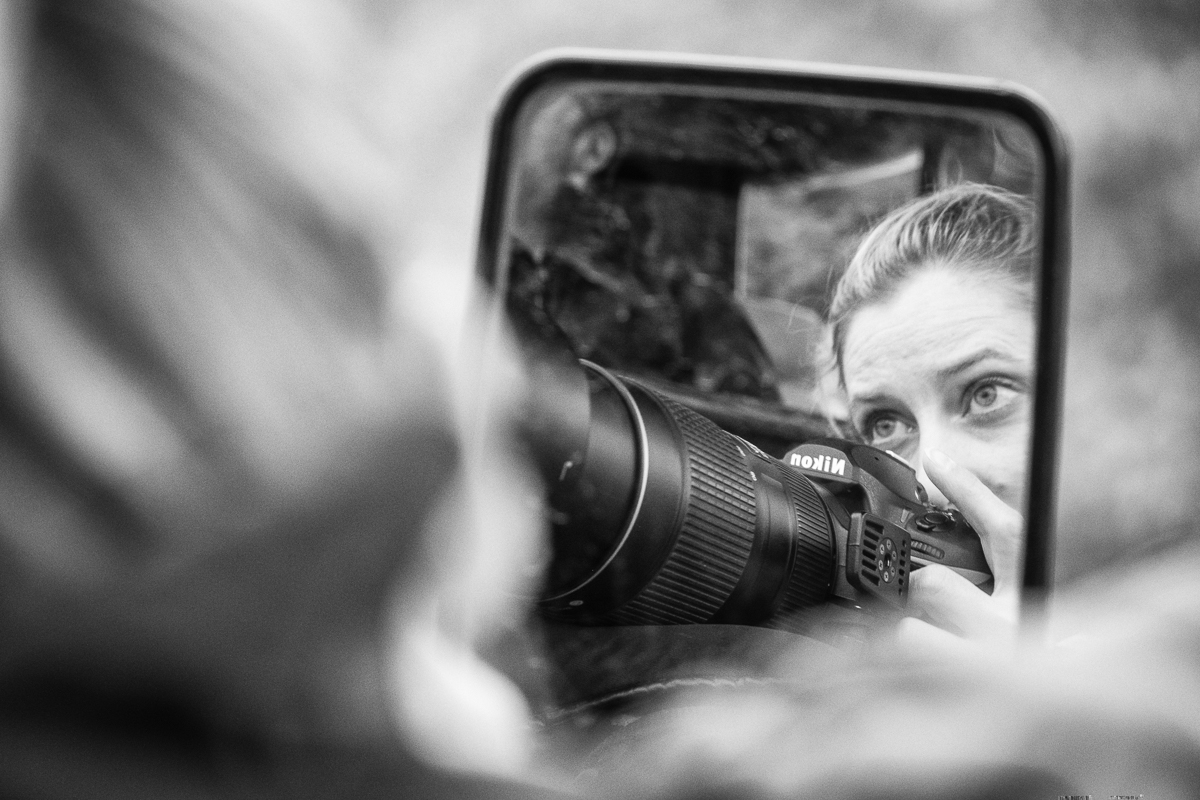Photography can be an expensive pursuit, and the cost of things (and the pressure to buy them all, buy them new, and buy them now) can get in the way of putting that money in better places. It’s not my place to tell you what to do with your money, but I do want to suggest you consider investing it in ways that give you greater creative freedom and make you a better photographer than the usual push you might be getting to buy the latest and greatest, which I’ve found to be an endless pursuit.
Here are four recommendations I want to nudge you to consider, none of them particularly novel, but I thought it might just help to hear it from me.
1. Resist the upgrade cycles. I know, I know, New Camera MK VII just got released and it’s sexy and shiny but it won’t make your photographs any better. Not these days. Unless you really do need ISO 250,000 for the series you’re doing on deep-earth spelunking. And the second version of that lens that you loved only months ago? You don’t need it. Skip an upgrade cycle. Let others pay top dollar to fund the R&D on the newest and shiniest. In a year, it’ll be obsolesced by yet another development. Buy it then. Or don’t. You don’t need the pro bodies, the L-glass, or the red dot to be a “real” photographer.
2. Don’t buy at all. Not everyone gets to do this but if you’re combining your craft with commerce and you’re making even just part of your living with photography, don’t buy the fancy lens you need for the gig; rent it and bill it to the client.
Technology is a terrible place to put your money, and the less overhead you have in gear, the better. Put that $2000 into your registered retirement savings (RRSP/401K) instead. I know, it’s less sexy, but it’s the better move. You get to keep $2000, avoid the interest on the credit card you’d inevitably have to use to buy the lens in the first place, and you get a tax break. And if you’re not doing this professionally, renting can still save you money. As can borrowing. You don’t have to own it to enjoy it and test it out.
3. Still have to buy? Consider buying it used. Most of us are really precious about our gear and we want it to be perfect. But my gear, perfect as it often is when I buy it, no longer is. Now it’s just my dented up, scratched-up gear that still works for me day in and day out, and if it’s going to be a little dinged up (but still working perfectly) in a year, you might as well buy it pre-dinged and save the money.
There are some great ways to buy used gear, often at a fraction of the original cost. Consider your local camera store first; they often have customers trading in gently-used gear for new gear, and they’ll stand behind what they sell. The same applies to some of the giants of photography retail, like B&H in New York. KEH.com (also based in the US) is very reliable for both selling and buying.
4. Sell It. Finally, if it’s not being used, consider selling it. The longer you wait, the less your gear will be worth. And if it’s not being used, it could be traded in for something that you will use—something that you might otherwise spend more good money on. Unless you’re an actual collector, there is usually no value in keeping that gear around; most often, the value diminishes the longer you wait.
Having gone bankrupt once in my life, I’m full of some very passionate sermons about money, and this can be a very expensive craft. It doesn’t have to be.
So let me wrap it up with one last plea: if you’re going to spend your money, spend it where it really matters.
- Spend it on opportunities to learn, to shoot more, and to travel (if that’s your thing).
- Take a workshop or rent a studio for a week and work on your project.
- Spend it on a printer or on getting prints made so you can finally hold your work in your hands.
- Spend it on books of great photographs and study them.
Be as intentional about your money as you are about your photographs and you’ll have more opportunities to make those photographs—and if you’re wise about where you spend it, you’ll become a stronger photographer at the same time.
For the Love of the Photograph,
David duChemin

PS – Want more like this? I send these articles out every two weeks to photographers around the world who want to improve their craft and explore their creativity and I’d love to include you. Tell me where to send it and I’ll send you a copy of my best-selling eBook Make Better Photographs, as well bi-weekly articles, first-glimpse monographs of my new work, and very occasional news of resources to help you keep moving forward in this craft we love.
“Each and every one of your emails inspire and motivate me to want to jump right out of my chair away from my computer and shoot for the love of it . Thank you David.” – Millie Brown


Comments
Good to read, I would suggest also to spend money on getting new clients. I invested a ton in my wedding photography skills (https://www.storiesbyarv.co), but then the weddings did not came by themselves. My marketing skills (love it) were neglected and did not had enough work.
Perfectly stated!! Thank you for sharing all you do!
Really sound advice – thank you! The upgrade will only be marginally better and a lot more gear definitely means more to worry. An inspiring class will lead to greater creativity and artistic satisfaction.
Thanks for producing the monograph on Venice, David. I’ve been there twice many years ago, once in November. Even with all the water, I can still see the Venice I remember. I see (or perhaps I just feel) in your images the frustration/angst/etc in the people, but I also see their tolerance for what must be something they just get used to over time (..just set up a wine table and bear it).
Great travels!
Great insights!
Having been through a dozen or more Canon film and digital bodies and lenses over 25 years, then switching to Fuji X for 5 years, I finally bit the bullet and sold all of my Fuji kit and purchased my first Leica, the M10, in November 2017 along with a Summicron 35mm and Summilux 50mm lenses. I was hooked. I acquired a second M10 body and a few additional Leica M primes. I love the Leica M rangefinder shooting experience. Now I’m finished. Check off Leica M on my bucket list.
I do print my work using an Epson P800. With a maximum print width of 17″, this printer serves my needs very well. The image quality is unbelievable when printing directly from Capture One Pro.
One other suggestion that has worked well for me is to delete the gear review websites from my browser and unsubscribe to the many gear-selling photo eNewsletters that I have received for years. I no long waste my time reading reviews on gear that I have no desire to buy. Make life simple and spend more time shooting with the gear that I already own.
Regards,
Bud
Yes, Yes and Yes. 🙂 Think before you spend. It’s not the gear alone that makes a great shot. I heard some rumours the human behind the camera has something to do with it too. 😉 And in additon to the “buy used”: Give “vintage” glass a shot. The value for money is ridiculous good. You can get a a Canon FD 85 1.8 for € 250,- or even a Leica R 90 2.8 for € 300,-. And some of these “vintage” lenses really got soul. Yes you have to focus manually. But I found that this also helps my photography.
It is a very expensive passion! I stop buying upgrade now but I did spend lots of money. I have 4 full frame Canon and cannot get rid of them! Only by choice though. Great article and advice though.
When I became a professional photographer in 2003, I bought the 11mpx Canon 1DS. I almost cried as I left the shop, £7k lighter. It was a beast of a camera and I have many great memories of the places we travelled together.
I’m no often behind the camera these days, thought it would still work if I need it, I imagine. I recall one of the Canon guys saying how they made their money from drip feeding the wealthy amateurs new features and getting them to upgrade., Whereas people like me simply ran it, and ran it, and ran it.
Today, less than £1k gets you am amazing setup and right now I am loving finding vintage lenses on eBay for the Sony A6300 I now shoot with. Less than £50 gets you some amazing manual focus vintage lenses with adapters.
It shouldn’t cost the earth to love photography.
I couldn’t tell you what the latest camera is or has for features. Been using the same camera for close to 12 years (and a smaller one for travel for five years). It’s funny that when people ask me for a recommendation on a camera, they usually know more than I do.
I’m the same way, Tom. I often wonder if people think I’m a total moron because I’ve not got the foggiest idea about what’s the latest and which cameras do what. But the same camera for 12 years – that is impressive!
I bought a new Nikon D2H in 2002 when I was a working photojournalist for a small Florida newspaper. I used that camera (and got the paper to buy a D2Hs) until 2013 when I retired. Sold all my Nikon gear (too heavy) and have stuck with a pair of Fuji X100S bodies along with the TCL and WCL lenses that I bought in 2013. These will probably be the last cameras I own along with a Yashica Electro35 GS that was passed on to me in ’98 after my dad passed. And, yes, it still works and I use it!
Would love to know what you use, please!
Hi David, I could not agree more. I would add that renting gives you the opportunity to understand if that specific piece of gear is actually so wonderful and indispensable.
Great article and thanks for the recommendations!
David, thanks for your article. It is very pragmatic and down to earth, thank you. I get tempted with stuff, but I find that I know my camera and enjoy using it. Your story is a good reminder to just take photos.
Very in-depth article with lots of valuable information. Thank you for this useful article.
Thanks for the tips! With 3 kids keeping up with technology is an expensive habit as their phones and gadgets need replacing. Better to spend that $ on travel and maybe a workshop taught by a human.
Nice article, lately I have been feeling “behind the times” with my equipment, even though it still works perfectly well and I am in not in any position right now to spend money on gear. You remind me once again the important thing about photography is the content and composition not what you used to make it.
Love your articles! 🙂 It’s so important to accept the fundamentals. Technology cannot compensate missed training.